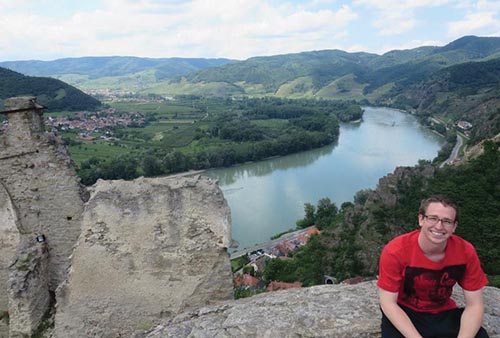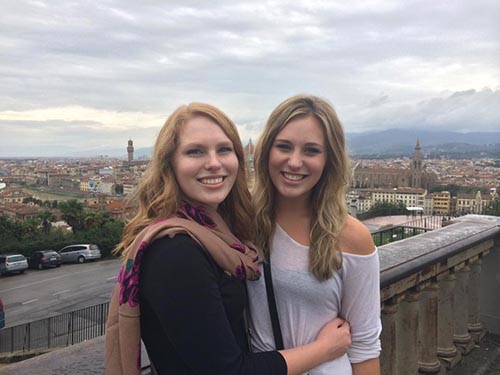Homesick at Home
Study abroad students struggle with the culture shock of returning to Eau Claire
December 10, 2014
For most college students, the last two weeks of the semester are reserved for finishing up projects and preparing for finals. For a select group, however, the end of the semester is also the end of a four-month long opportunity of a lifetime.
With almost 60 various study abroad programs offered, a lot of students from UW-Eau Claire opt to dedicate months of their lives to study in countries all over the world.
Many call the stories and experiences they bring back with them invaluable and believe they are worth every potential sacrifice made to make them possible.
Despite the memories and opportunities gained from being abroad, there is one common hardship those who travel experience that seems to occur after students have already returned. It is called reverse culture shock, and many students experience it upon arriving back in the states.
“Coming back from Europe was one of the hardest things that I’ve ever done,” junior Trace Osborn said. “The people abroad and the experiences I had there made coming home to the same monotonous life a challenge.”
Despite only going on the month- long Central European Travel Seminar in June 2014, Osborn said he spent the months afterward unable to focus on anything else.

“I threw myself into working,” Osborn said. “I worked 50-60 hours a week the rest of the summer and started saving money and trying to figure out ways to go back.”
The problem of acclimating back into American life is not something that goes unnoticed by the university. Upon returning, students are required to take follow-up surveys, directing them toward web pages and videos. These are designed to help them work through their feelings of loss.
The study abroad web page defines reverse culture shock, or re-entry shock, as the unanticipated, unsettled feeling students may have upon return. It can often be more intense than the initial culture shock students face when arriving in foreign countries.
The university provides a video for returning study abroad students, talking about dealing with these feelings. It also offers therapy sessions at Student Health Service for students suffering with severe post-study abroad depression.
Junior Emily Johnson, who will return from her study abroad program in Florence, Italy, on Saturday, said while she is excited to see her friends and family again, she worries about how she will handle coming home.
This is a fear many students neglect to think of when applying to study abroad but that is common for students about to head home.
“The hardest part about going back to America will be returning to my comfort zone,” Johnson said. “I’ve learned so much by being out of America and in new and exciting situations, so returning home might not offer as many opportunities as Europe has offered.”

Eau Claire counters this fear by reminding students of all of the activities the university has for them and also urges them to get involved in the promotion of studying abroad.
Many students feel re-entry shock the most when they feel like no one wants to listen to them talk about their experience, but spending time with others who have also gone abroad can help alleviate some of that shock.
Senior Katie Carlson, who went on the Winchester, England, study abroad program in Spring 2013, attested to feeling lost after coming home and said the biggest hurdle was going back to American schooling.
“I think the hardest part was the difference in lifestyle from being a student abroad to a student here,” Carlson said. “Every day was a new adventure; where even the courses I was taking had different styles of instruction.”
Going back to school at Eau Claire often means a return to the real world and responsibilities, which can be one of the main triggers of nostalgia in students. Carlson keeps her homesickness for England at bay simply by hanging out with those she went on the trip with.
“It was helpful to continue to talk to people I studied abroad with, to be able to relive some of the memories together,” Carlson said. “Also, I had to try to find things to look forward to in Eau Claire and to remind myself that exciting things can happen no matter where you are.”
Sometimes this is easier said than done. Osborn continues to miss the countries he explored over the summer and said, “re-adjusting to life here is still a work in progress.”
For students like Osborn, the shock of coming back from studying abroad simply can’t be relieved by reminiscing and advocating to others. He will return to Europe for a month next winter through the university once again.
“I’d made so many great memories, and I couldn’t imagine not going back to Berlin or Budapest again,” Osborn said. “I’ll probably continue traveling for the rest of my life. Studying abroad was just the beginning.”

